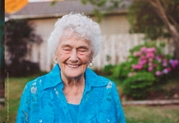During the Discharge Process
To help your loved one return home smoothly and safely, we recommend you contact us while your loved one is still in the hospital or rehabilitation center, if not beforehand.
Our specialists can assist you during the discharge process by collecting important information from your doctors, nurses, and therapists.
During the discharge process, our care specialists gather information, including your prescribed therapy, medications, and other treatment in order to create an individualized plan of care that our carefully selected nurses, therapists, and caregivers will implement in the comfort of your own home when you return there.
During the Recovery Process
Upon your return home, Affinity will send you its experienced nurses and therapists to deliver the physician-ordered treatment, allowing you to recover and regain independence in your own home. In addition, our caregivers will assist with all the tasks of daily living (bathing, toileting, dressing and eating) and household chores (such as meal preparation and light housekeeping).
Beyond these physical needs, our team of care professionals will provide your loved one with companionship – helping them stay in high spirits and recover more quickly.
Our team is also prepared to help you with the many logistical demands of post-hospital care – including running errands, picking up refills, and transporting your loved one to follow-up appointments.
Common conditions needing supervised recovery:

- Hip Replacement Surgery
- Knee Replacement Surgery
- Foot Surgery
- Shoulder Surgery
- Open Heart Surgery
- Cosmetic Surgery
- Parkinson’s Disease
- Alzheimer’s Disease/Dementia
- Arthritis Care
- Cancer/Chemotherapy Care
- Stroke Care and Recovery
- Spinal Stenosis
- Renal Failure
- Lymphedema
- Diabetic Neuropathy
- Other Post-Hospital Conditions
As with all our services, we offer:

- Highly trained nurses, therapists, caregivers,
and other care professionals - Comprehensive home care
- Dedicated staffing
- Flexible scheduling
- Competitive pricing
- No long-term contracts
- On-call service, day or night
- 100% satisfaction guarantee
The 4 Stages of Recovery
Post-Hospital Care is Crucial
Recovering from a surgery or severe illness is difficult – at any age.
Because the body is still working to heal itself, the patient is often extremely tired and unable to perform many tasks. And when the recovery process lasts weeks or months, this sense of dependence can easily develop into depression – making recovery even slower.
Most patients wish to recover at home, and with good reason. Hospitals, rehabilitation centers, and skilled nursing facilities – no matter how beautifully decorated – can be boring and depressing places, to say nothing of the risk of infection from other patients.
Of course, home recovery also poses risks – which is why it helps to have a team of care professionals monitoring your loved one.
If you are a friend or family member caring for a loved one after a major medical operation, it is common to find that your sense of compassion is mixed with feelings of confusion and helplessness.
When your Loved one is Discharged from the Hospital
You will be given a lengthy list of recommendations from the doctor and nursing team – which won’t include all the chores and errands you will need to perform while your loved one is incapacitated.
And if you’re juggling these duties with other responsibilities – to your employer, or your spouse and children – you could develop health problems of your own, or make mistakes as a caregiver. You may leave your loved one unattended for long periods, or rush her through the 4 Stages of Recovery too quickly. Unfortunately, this is why 1 in 3 seniors end up back in a hospital within 3 months.
That’s a costly and unnecessary consequence, which a trained caregiver can help you avoid – while also lightening your workload, relieving your stress, and speeding up your loved one’s recovery.
Affinity’s Care professionals are happy to help you in these ways and more.